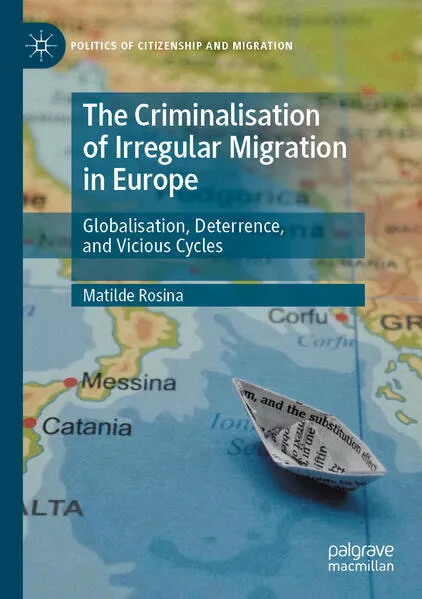
- Publikationen ca: 3
- Fragen & Antworten
Matilde Rosina
Matilde Rosina is Fellow in International Migration at the European Institute of the London School of Economics and Political Science, UK. Her research focuses on irregular migration, with specific reference to the European context. Matilde obtained her award-winning PhD in International Political Economy from King’s College London, having received scholarships from the Luigi Einaudi Foundation and the Jean Monnet Foundation for Europe. Before joining LSE, Matilde lectured at City, University of London, and at Fordham University.
The Criminalisation of Irregular Migration in Europe
This book explores the criminalisation of irregular migration in Europe. In particular, it investigates the meaning, purpose, and consequences of criminalising unauthorised entry and stay. From a theoretical perspective, the book adds to the debate on the persistence of irregular migration, despite governments’ attempts at deterring it, by taking an interdisciplinary approach that draws from international political economy and criminology.
The Criminalisation of Irregular Migration in Europe
This book explores the criminalisation of irregular migration in Europe. In particular, it investigates the meaning, purpose, and consequences of criminalising unauthorised entry and stay. From a theoretical perspective, the book adds to the debate on the persistence of irregular migration, despite governments’ attempts at deterring it, by taking an interdisciplinary approach that draws from international political economy and criminology.
The Criminalisation of Irregular Migration in Europe
This book explores the criminalisation of irregular migration in Europe. In particular, it investigates the meaning, purpose, and consequences of criminalising unauthorised entry and stay. From a theoretical perspective, the book adds to the debate on the persistence of irregular migration, despite governments’ attempts at deterring it, by taking an interdisciplinary approach that draws from international political economy and criminology.


